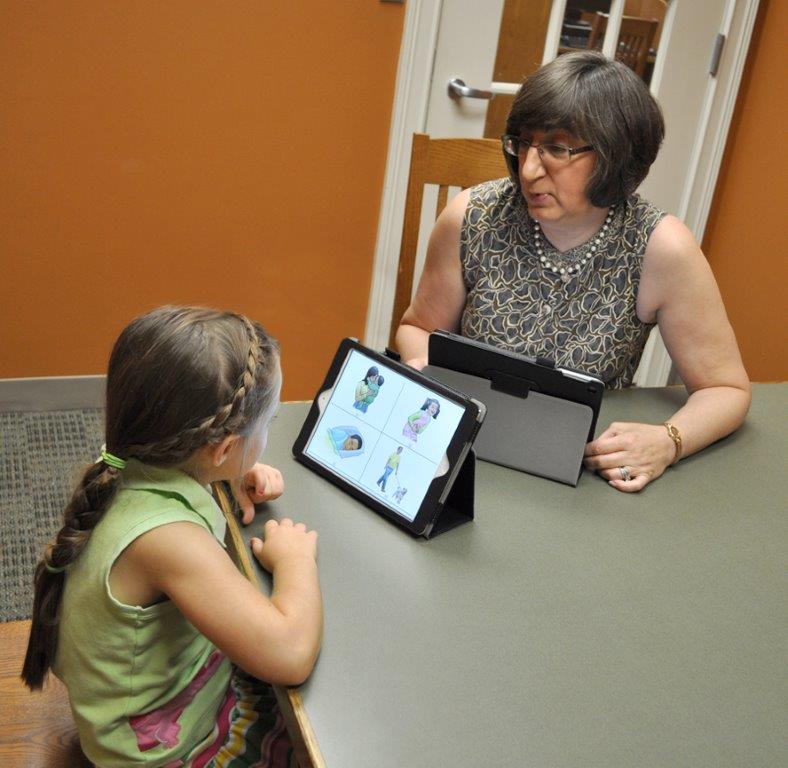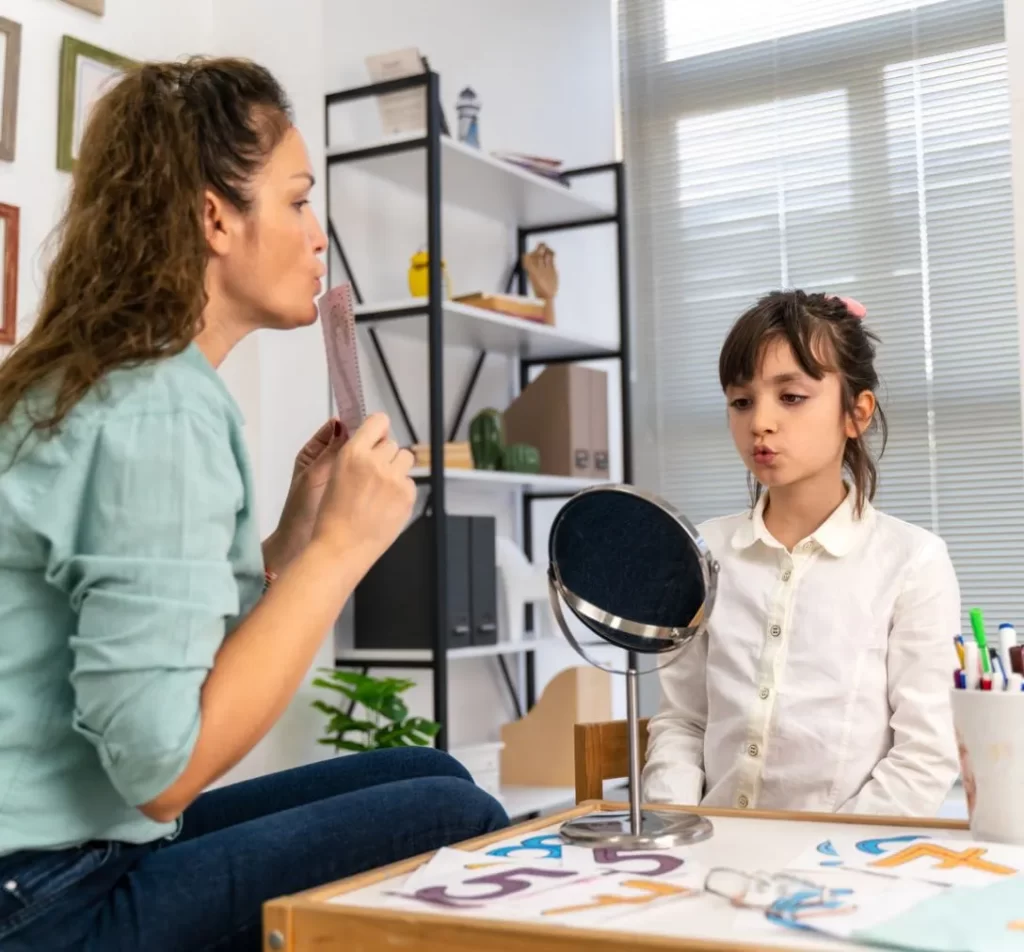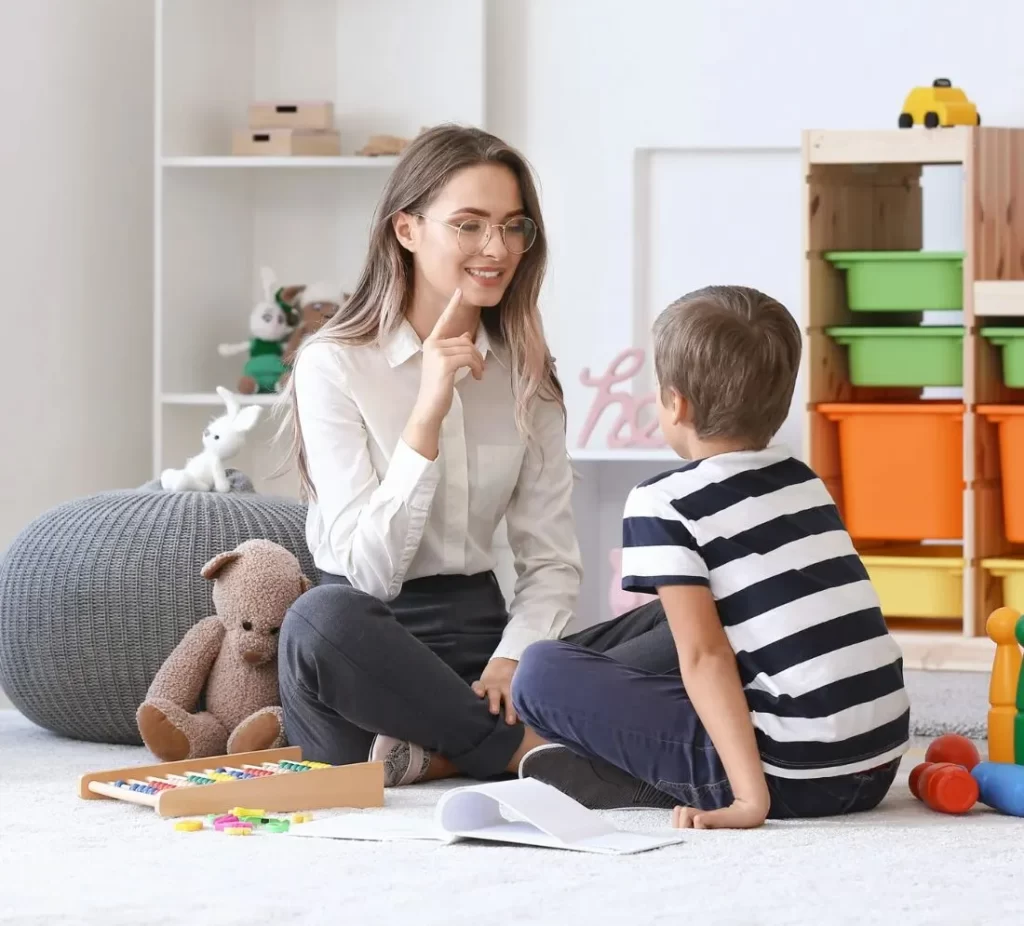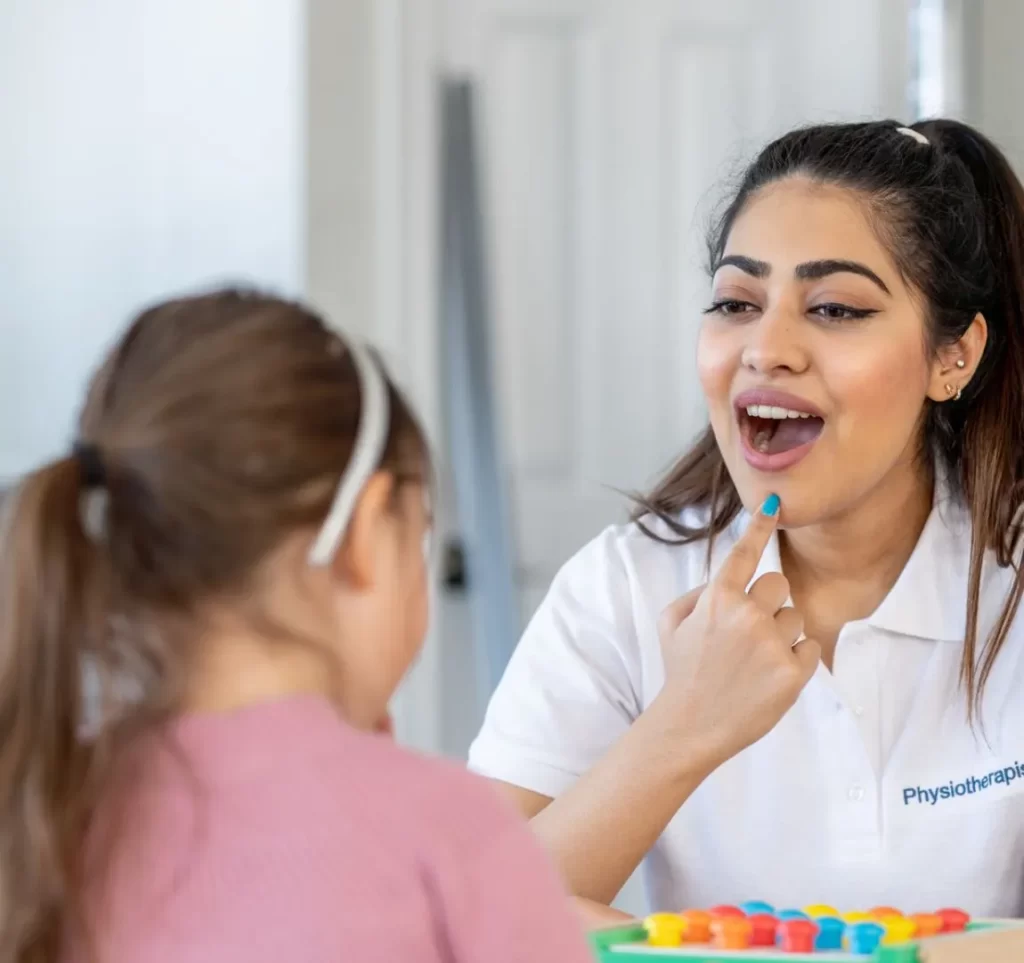Services Provided By An Experienced, Certified, And Licensed Therapist:
- Consultations
- Screenings
- Evaluations
- Conference
- Therapy
Our Capabilities:
- Building strong relationships with children and parents
- Conducting thorough evaluations
- Individualizing goals
- Planning client centered, evidenced based, speech & language therapy
- Managing behavior using effective behavior management techniques
- Conducting individual or group therapy as needed
- Utilizing computer based assessment & therapeutic applications
- Providing immediate feedback to parents, parent education & training
- Recording data to ensure successful outcomes in small achievable increments
- Signing exact English
- Training social skills
- Using multi-sensory approaches to therapy
- Play-based therapy
- Specialty trainer


Speech Therapy Consultations
“Speech Therapy Consultations” refer to sessions or meetings between a speech-language pathologist (SLP) and a client or their caregivers to assess, diagnose, plan, and provide recommendations or interventions for communication and/or swallowing disorders. These consultations typically involve evaluating the individual’s speech, language, cognition, voice, fluency, and swallowing abilities, and may also include discussions about treatment options, goals, progress monitoring, and strategies for improving communication or swallowing function. The frequency and duration of these consultations can vary depending on the individual’s needs and the goals of therapy.
Speech Therapy Screenings
Speech Therapy Screenings are preliminary assessments conducted by speech-language pathologists (SLPs) to identify individuals who may have communication or swallowing difficulties and require further evaluation or intervention. These screenings are typically brief and serve to identify potential areas of concern rather than providing a comprehensive assessment.
During a speech therapy screening, the SLP may administer quick tests or observations to assess aspects such as speech sound production, language skills, fluency, voice quality, or swallowing function. The purpose is to determine if there are any apparent difficulties that warrant a more thorough evaluation through formal assessment or therapy sessions. If concerns are identified during the screening, the individual may be referred for a comprehensive evaluation or further diagnostic testing to determine the nature and severity of their communication or swallowing difficulties.


Speech Therapy Evaluations
“Speech Therapy Evaluations” refer to comprehensive assessments conducted by speech-language pathologists (SLPs) to thoroughly evaluate an individual’s communication and/or swallowing abilities. These evaluations are typically conducted to gather detailed information about an individual’s speech, language, cognition, voice, fluency, and swallowing skills in order to diagnose any disorders or difficulties accurately and to develop an appropriate treatment plan.
During a speech therapy evaluation, the SLP may use a variety of standardized tests, informal assessments, interviews, and observations to assess the individual’s abilities across different areas of communication and swallowing. The evaluation process may include tasks such as assessing speech sound production, language comprehension and expression, cognitive-communication skills, voice quality, fluency, and swallowing function.
The results of the evaluation help the SLP to determine the nature and severity of the individual’s communication or swallowing difficulties, identify areas of strength and weakness, establish baseline performance levels, and develop personalized goals and intervention plans tailored to the individual’s needs. These evaluations serve as the foundation for guiding the speech therapy process and monitoring progress over time.
Speech Therapy Sessions
“Speech Therapy Sessions” are structured meetings between a speech-language pathologist (SLP) and a client, during which targeted interventions and activities are conducted to address communication and/or swallowing disorders. These sessions are designed to help individuals improve their speech, language, cognitive-communication, voice, fluency, and/or swallowing skills.
- Articulation drills: Exercises focused on improving the production of speech sounds.
- Language activities: Tasks aimed at enhancing vocabulary, grammar, comprehension, and expression.
- Cognitive-communication exercises: Activities designed to improve thinking, problem-solving, memory, and other cognitive skills related to communication.
- Voice therapy: Techniques to address vocal quality, pitch, volume, and resonance.
- Fluency techniques: Strategies to improve the smoothness and rhythm of speech for individuals with stuttering or other fluency disorders.
- Swallowing exercises: Exercises to strengthen muscles involved in swallowing or improve swallowing coordination.
- Augmentative and alternative communication (AAC) training: Instruction on using communication devices or systems for individuals with severe communication impairments.
Throughout the sessions, the SLP provides guidance, feedback, and support to help the individual progress toward their communication and swallowing goals. The frequency and duration of speech therapy sessions can vary depending on the individual’s needs, severity of the disorder, and treatment plan.


Speech Therapy Parent Conference
A “Speech Therapy Parent Conference” is a meeting between a speech-language pathologist (SLP) and the parents or caregivers of a child receiving speech therapy services. These conferences serve as an opportunity for the SLP to discuss the child’s progress, treatment plan, and any concerns or recommendations with the parents or caregivers.
During a Speech Therapy Parent Conference, the SLP may:
- Provide updates on the child’s communication and/or swallowing goals and progress.
- Share assessment results and interpretations.
- Discuss the effectiveness of current therapy strategies and interventions.
- Address any concerns or challenges observed during therapy sessions
- Collaborate with parents or caregivers to set new goals or modify existing ones.
- Offer guidance and suggestions for home-based activities or strategies to support the child’s progress outside of therapy sessions.
- Answer questions and provide clarification on speech therapy-related topics.
These conferences are essential for fostering open communication between the SLP and the child’s support network, ensuring that everyone involved is informed and engaged in the therapy process. Additionally, they provide an opportunity for parents or caregivers to share insights about the child’s communication and swallowing skills in different environments and to discuss any concerns or goals they may have for their child’s development.
